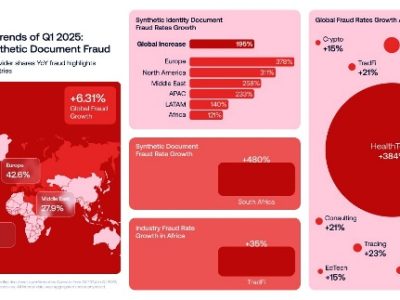Evgeniya Russkikh, Head of Academic Affairs at Kaspersky
Generation Z (Gen Z), the up-and-coming generation, is making significant strides in various aspects of life. Notably, numerous brands are now aligning their products and communication strategies with the tastes and preferences of Gen Z.
RELATED: 5 ways to better manage your Gen Z employees
The HR market has also not remained untouched by this phenomenon. Employers are proactively adjusting their business processes to accommodate the arrival of Gen Z in their workforce. Kaspersky welcomes hundreds of Gen Z interns annually, sparking our imagination about our future tech industry leaders, and how they might evolve by the year 2040.
Gen Z represents the first generation born within the Internet and gadget era, fundamentally shaping their worldview. Information available on smartphones and the Internet has become an integral part of their natural experience and knowledge. As a result, they adeptly navigate endless streams of information, and effortlessly assimilate it. Their fearlessness of not knowing something stems from their ability to swiftly access answers by a simple Google search.
Nonetheless, this inclination to quickly seek solutions may inadvertently lead to shallow and fragmented thinking. Where the lack of a critical thinking approach could pose challenges for them as future tech industry leaders. It is therefore essential to strike a balance between leveraging the vast information at their fingertips and fostering deep analytical thinking, to ensure they develop into well-rounded and effective tech world leaders.
Generally speaking, Gen Z finds it challenging to fit into the traditional system of authority, as they feel constrained by rigid vertical hierarchies. Researchers have observed that Gen Z predominantly embraces the Human2Human paradigm. For these young individuals, being recognised as people rather than mere resources for task completion holds significant importance. This aspect of their mindset suggests that as future managers, Gen Z may lean towards establishing companies with horizontal management structures.
In such organisations, transparency, trust, and teamwork are expected to take centre stage as core values. By prioritising these principles, Gen Z leaders are likely to create a work environment that fosters collaboration and empowers employees, where every individual’s voice can be heard and is respected. This shift towards a more inclusive management style could pave the way for vastly more innovative and progressive businesses in the future.
Gen Z places a high value on maintaining a healthy work-life balance as they firmly believe work should bring satisfaction akin to socialising with friends, or engaging in leisure activities. Another distinguishing trait of Gen Z is their lack of rigid preferences and brand loyalty. Their broad outlook on life allows them to envision numerous possibilities, leading them to fearlessly explore new opportunities and embrace change.
As a result, they are not hesitant to switch companies, or even transition between different career fields. While the average person may change professions three-to seven times in their lifetime, Gen Z is likely to traverse this path much quicker, experiencing around 10-15 diverse spheres over their career trajectory.
This ever-evolving journey empowers them to accumulate knowledge from various domains, enabling them to draw on insights and ideas from previous experiences in each new role they take on. The ability to integrate this cross-platform expertise opens the door for innovative approaches and the creation of novel products across different industries.
Many managers have observed that Gen Z stands out for their remarkable proactivity. They exhibit a fearlessness when it comes to proposing creative and innovative ideas that transcend the boundaries of their roles and departments. What’s even more striking is their willingness to embrace mistakes as part of the learning process. Unlike previous generations, Gen Z does not wait for the “perfect moment” to launch a product.
They are ready to act in the present, and are not afraid of making mistakes; instead, they embrace it as part of the learning process. This boldness and decisiveness will bring about a significant drop in the average age of startup CEOs, as young individuals and even teenagers are already proving their success in running their own businesses.
Gen Zers are undeniably the future of the IT industry. Kaspersky welcomes hundreds of Gen Zers each year for internships, providing them with the opportunity to unlock their inherent qualities as future industry leaders. These individuals already possess the essential traits; all that’s left is to take the next step and nurture their potential while refining existing soft skills and technical expertise, and numerous organisations all around the world are already supporting these young talents in their way.
Participating in international student competitions, such as Kaspersky’s Secur’IT Cup, or educational and internship programs can be instrumentals in this journey. With determination and support, these young individuals have the potential to shape the IT industry and leave a lasting impact on the world.





























